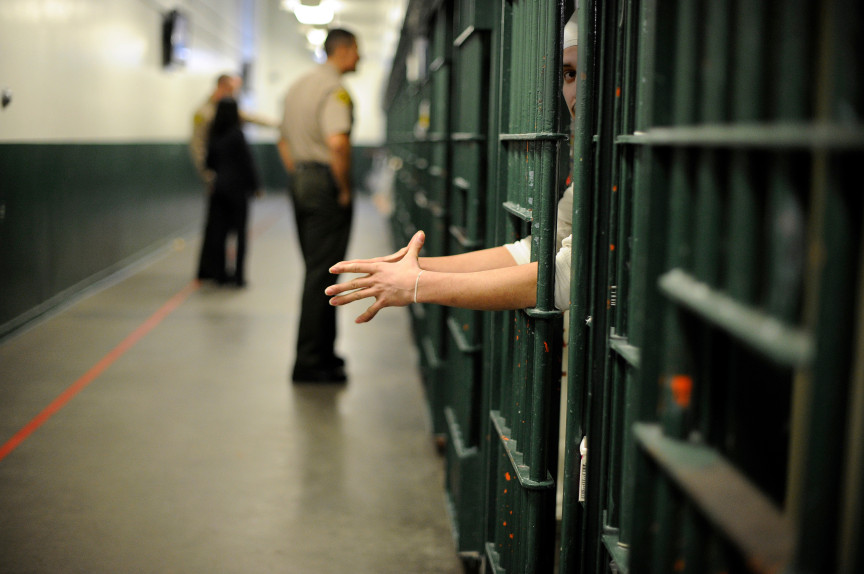
As families across the country gather to celebrate the holidays, many of us will sit at the dinner table with loved ones. Others will sit at tables with empty seats, missing our family members with addiction or mental health issues who sit instead on the streets or in jails and in prisons-our nation’s de facto warehouses for those suffering from substance use disorders (SUDs). Today, 85% of America’s prison population has an active SUD or are incarcerated for a crime involving drugs or drug use. Unfortunately, only a small fraction of these individuals ever receive support services and treatment–the only tools that effectively address these ailments.
Our societal failure to treat the increasing prevalence of SUDs as the public health crisis it is has severe consequences for our communities. Fortunately, modern prosecutors are forgoing the criminalization of addiction and mental health related offenses. By pushing these cases towards treatment instead of jail cells, these prosecutors are playing an important role in the ongoing effort to unwind the behavioral health crisis on our streets.
As a licensed marriage and family therapist who has worked with hundreds of people suffering from SUDs in both community mental health centers and in private practice, I have seen how these ailments often lead to interactions with the criminal justice system. I’ve also witnessed how using the criminal justice system to punish this population too often traps them in a vicious cycle that hurts their chances at rehabilitation. Jails and prisons are fundamentally places of confinement and control rather than treatment, healing and health. Drugs are also readily available in most lockups. Accordingly, warehousing this population for short periods of time on low-level offenses associated with drugs and mental illness exacerbates addiction and mental illness, and the epidemic spirals and spills back onto our streets upon release.
This has largely been California’s approach for the past 40 years. Is there any surprise that so many people are suffering on our streets today?
There are a number of reasons why people use drugs. Some are influenced by peers, are looking for an escape or are merely curious. Others are seeking to manage unprocessed trauma or self-medicating for an untreated mental illness. Whatever the reason, SUDs can quickly take over someone’s life leading to dramatic changes in behavior, relationships and stability.
It is no surprise that many people with SUDs become involved in the criminal justice system. Drug use can lead to aggression, poor impulse control, poor judgment, and even brain damage. Unfortunately, some people with an SUD engage in criminal behavior such as property crimes leading to arrest and prosecution. Substance use can also exacerbate other life challenges like housing, job and relationship problems leading to escalation or violence.
Studies show that many who seek addiction treatment get better and increase their health and function. . Although people must be held accountable for their actions, some cases involving an SUD can create an opening to connect people with the treatment they need. That’s why California policymakers and politicians are beginning to embrace the research showing that connecting people with services and treatment is more effective at reducing recidivism and future crime than incarceration.
There are many successful programs demonstrating the efficacy of treating SUDs as a public health crisis as opposed to incarceration only. Drug courts – which can divert people with addiction issues into mandated treatment – can be effective in addressing addiction and reducing recidivism. Providing supportive housing, ongoing assistance, and secure income have also been shown to help individuals overcome their SUD.
We must also educate system stakeholders such as law enforcement, detention staff, prosecutors, defense attorneys, and judges on SUDs. This can empower key players to identify individuals with SUDs and work collaboratively to help people.
Related Articles
At Christmas, remember it really is a wonderful life
FBI suppression of the Hunter Biden laptop story
What Israel’s incoming government means for U.S-Israel relations
Supes wisely abandon Orange County power fiasco
As prisons close, can we save their host communities?
Ultimately, we must develop a continuum of services that catch people before they reach the criminal justice system. Expanding readily available mental health services, funding drug education programs with access to early intervention services in schools, making treatment and support services easily accessible and available, building additional units of supportive housing, and reducing the availability of drugs can have an enormous impact.
For 40 years we doubled-down on incarceration instead of treatment. To address the crisis on our streets and in our jails, policy makers and modern prosecutors alike must continue to unwind our failed drug war. It’s the only way to advance public safety, promote public health, house the homeless, and get people the help they need.
Dr. Gena Castro Rodriguez has a doctorate in clinical psychology and is a licensed marriage and family therapist (CA # 49717).
